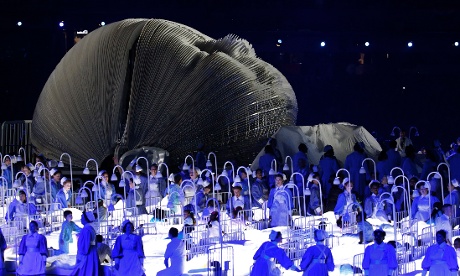I watched the women's Olympic cycling road race this afternoon and it was exciting. I am beginning to understand the tactics needed for winning a cycle race and the collaboration needed.
In running races you aim to get ahead on your own and reach the winning line as fast as you can! A long cycle race requires a different approach. This is because of slip-streaming. A cycle can go 25 % faster (or you need 25% less energy) when you ride in the slipstream of the bike ahead. When you ride together as a peloton then the group slipstream means that the riding is easy for the whole group.
In Sunday's race the three women, a Dutchwoman, an English woman and an Russian broke away from the peloton and formed a chain gang - a cycling manoeuvre where they all help each other by sharing the hard riding at the front and so all equally benefit from the slipstream. This involves rotating the lead in a continuous manoeuvre as the front rider peels off and joins the back. It works with small groups but three is the minimum number of riders needed to make it work effectively. The women who had made the break had to help each other to ensure that they stayed ahead of the main group - if they failed to collaborate then the bunch would have caught them up. They could only stay ahead by collaboration. Of course in the last hundred metres the sprint started and then it became each one for themselves as they raced for medals.
Racing cyclists compete as teams, supporting each others strengths. In this way the climbers will push the pace on the hills and the team will try to ensure that their sprinter gets to the front at the end. The team can also set the speed of the main peloton and hold it back if they want to stop others from catching up their team member who is in a break away group ahead! Most cycle races are team events in which each member of a team has a part to play to ensure that one member of the team wins for them all. Of course with such complex tactical race planning all sorts of things can go wrong. The most well thought out game plan can fail due to those things that cannot be planned for such as punctures, weather, crashes, and the behaviour of other riders.
It seems to me though that the collaborative approach needed for winning a cycle road race can teach us a very important lesson for life.











